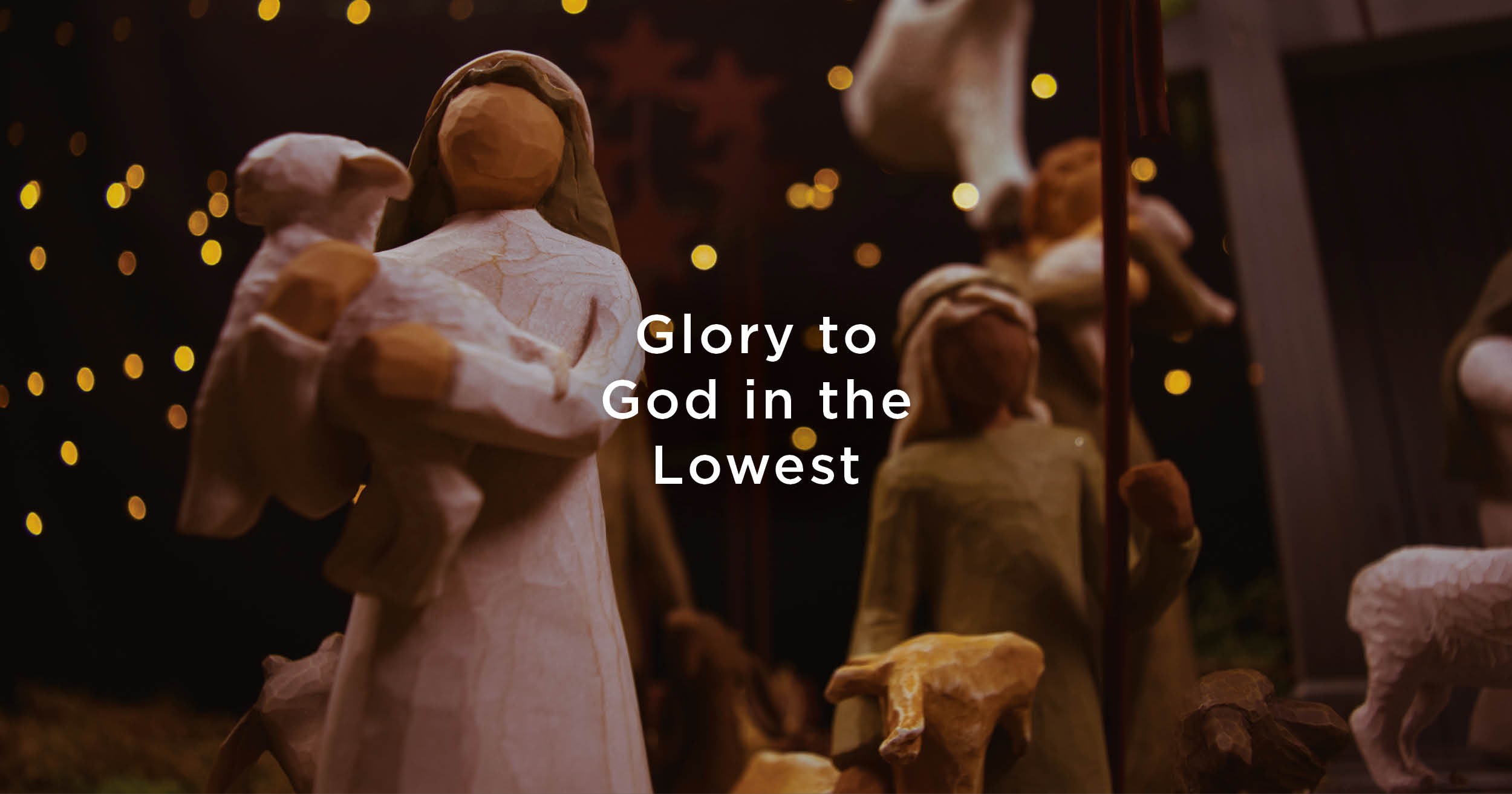
In the same region there were shepherds out in the field, keeping watch over their flock by night. And an angel of the Lord appeared to them, and the glory of the Lord shone around them, and they were filled with great fear.
Luke 2:8-9
It may have been the greatest choral presentation in the history of the world. One nameless angel had the honor of singing the lead, with a veritable angelic multitude behind him. But no tickets were sold, and the show was not announced ahead of time. The audience was simply a flock of unresponsive sheep and a lowly band of unsuspecting shepherds.
The Gospel of Luke records the story for us to wonder at too.
But it was too good to keep quiet about.
Word got out, and “all who heard it wondered at what the shepherds told them” (Luke 2:18). The Gospel of Luke records the story for us to wonder at too.
It had been a night like any other in the fields outside Bethlehem, so we can imagine the shepherds were seriously caught off their guard when the messenger made his appearance.
One old carol describes this moment as angels “sweetly singing o’er the plains”—that may be how the shepherds came to remember the show with nostalgia, but the first surge of emotion that broke in on them was fear.
“An angel of the Lord appeared to them, and the glory of the Lord shone around them, and they were filled with great fear” (Luke 2:9).
The angel acknowledges their terror and clarifies that the grandeur of this display—this shining of the glory of God—is not to make these lowly shepherds cower but to make them deeply and enduringly happy. “Fear not, for behold, I bring you good news of great joy that will be for all the people. For unto you is born this day in the city of David a Savior, who is Christ the Lord” (Luke 2:10-11).
This good news of great joy—this declaration designed to make them profoundly and eternally happy—is that, at long last, the long-awaited hope of Israel, the Christ, the anointed One, about whom the prophets have spoken, has finally come. This is his advent, and this is not how anyone was expecting it.
How so? Well for one thing, this grand announcement is happening as a private presentation for unsuspecting shepherds. These are not the kings and rulers, the scribes and Pharisees, the learned and influential and esteemed of the day: precisely the opposite. These men live near the lowest rung; they are the grafters that society takes for granted. They herd sheep.
Here, from the very beginning, as God moves to provide a Savior for all people, he does it not on the world’s terms, according to human expectation, but in his own surprising, mysterious, and marvelous way. “God chose what is foolish in the world to shame the wise; God chose what is weak in the world to shame the strong” (1 Corinthians 1:27).
But not only does this extravagant announcement come to lowly shepherds, but the Christ himself comes as a child. He is a weak and fragile infant of manifestly humble birth: “You will find a baby wrapped in swaddling cloths and lying in a manger” (Luke 2:12).
No castle, no palace, no hospital, not even a house and a crib—he is born into the lowliest of accommodations, wrapped in the most common of raiment, so helpless that he needs to be swaddled to sleep, and laid on hay kept for animals.
After the messenger’s solo, suddenly the massive choir appears, praising God and saying:
Glory to God in the highest, and on earth peace among those with whom he is pleased! (Luke 2:14)
This impressive presentation is not about the worth and merit of the shepherds. The glory is not theirs.
And it’s not about mankind’s deservedness and value. This gospel is for all people, and this peace is for all the earth, and for all those with whom, by faith, God is pleased (Hebrews 11:6)—but this declaration of glory is not to them.
Rather, as the angels say, this stunning news, and this strange and wonderful way of carrying it out, is to the glory of God. He is the initiator and enactor. He is the one who has promised this Savior for centuries and has now sent him in humility to shepherds and all who acknowledge their lowliness.
It is his goodness on display in this good news, and the great joy he brings adds to the praise that he is given: “Glory to God in the highest.” And yes, for the sake of the lowest too.
Perhaps the most spectacular detail about this spectacular night is this subtle but world-changing line in the angel’s declaration: this newborn is “a Savior, who is Christ the Lord” (Luke 2:11). Come again? The Lord?
It was “an angel of the Lord” who appeared, and it was “the glory of the Lord” that shone around the shepherds, and when they finally respond, they acknowledge that this is what “the Lord has made known to us” (Luke 2:15). And this newborn Christ somehow shares the same divine identity.
Not only was this child sent from the Lord, but this was the Lord himself. Not only had the Lord of heaven initiated and acted to rescue his lowly people from their sin and shame, but he himself had come to earth, wonder upon wonder, and dwelt among us, in our own flesh and blood—the highest made lowest for us.
They understand that Christmas is not about the worth and goodness of humanity but the mind-blowing mercy of God.
The weight and magnitude of it all is too much for the shepherds to take in at once, and even for Mary and Joseph. But the shepherds get the point, and their hearts produce the right impulse, even as their heads are still spinning.
They understand that Christmas is not about the worth and goodness of humanity but the mind-blowing mercy of God.
And the shepherds returned, glorifying and praising God for all they had heard and seen, as it had been told them. (Luke 2:20)
Father in heaven, make us more like these shepherds, glorifying you through our joy in you, and praising you through our words and witness in the world. We don’t want to pretend to be strong and wise and noble. We acknowledge our lowliness and marvel that you sent your Son from the heights of heavens to the lowliest of earthly accommodations to announce and accomplish this good news of great joy.
In his name we pray. Amen.
This is an extract from The Christmas We Didn't Expect, an Advent devotional from David Mathis, executive editor for Desiring God. The above extract is a devotion for the 7th of December. When you purchase the book on our website, you receive a free ebook copy too so you can start reading today.

Reflections for Advent that help us to lift our eyes to the wonder of the incarnation and worship Jesus.